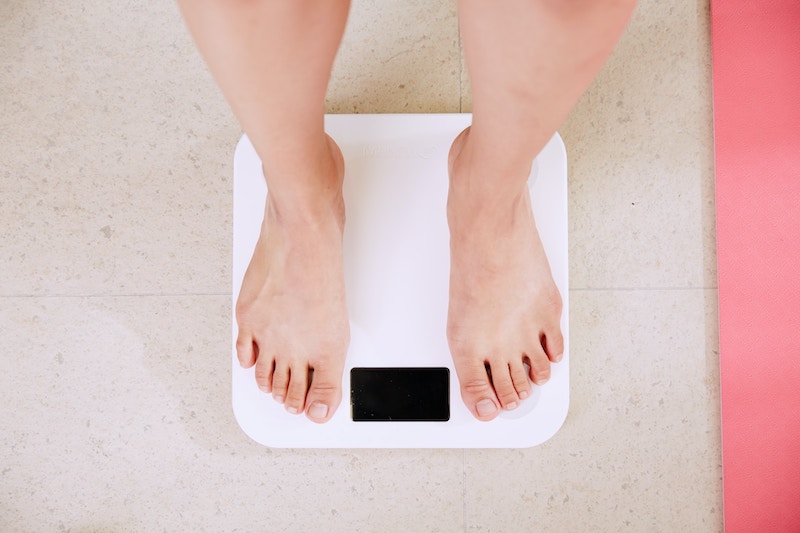CBD Articles, CBD in Japan, Healthy Eating
Does CBD Have Weight Loss Benefits? Understanding The Effects of Cannabidiol
The rise of Cannabidiol (CBD) in recent years has been nothing short of remarkable and this article delves into one of its increasingly researched potential benefits: weight loss. As one of the prevalent compounds in cannabis, CBD has caught the attention of scientists, wellness professionals, and users alike. Here, we’ll investigate the science behind CBD and its interaction with our metabolic functions. Let’s unravel the potential of CBD in managing weight and promoting overall health and wellness.
Table of contents
- Understanding CBD: Can Taking CBD Support Weight Loss?
- What Research Says About Weight Management and CBD
- Diet and CBD: Effects on Weight Gain and Loss
- Side Effects and Risks: Incorporating CBD for Weight Loss
- Diet Changes and Taking CBD: Beneficial Weight Management Strategies
- Who to Speak With About Using CBD for Weight Loss
- The Latest in Diet & Nutrition: Embracing CBD
- FAQ
Understanding CBD: Can Taking CBD Support Weight Loss?
The intriguing question of whether CBD can support weight loss has piqued the curiosity of individuals looking to enhance their diet and shed body weight. Deciphering the effects of taking CBD for weight management involves understanding the role of the endocannabinoid system. This system is believed to play a significant part in regulating various bodily functions, including appetite and metabolism, both of which are critical for weight loss. CBD products, including broad-spectrum CBD oil, may influence these functions due to their interaction with the endocannabinoid system.
Preliminary research suggests that CBD may aid in reducing food intake and boosting metabolism, thereby possibly contributing to weight loss, although more research is necessary. Among the myriad of CBD products available, CBD oils are particularly popular. It’s crucial to note that while THC, another compound found in cannabis, is known to stimulate appetite, CBD does not have this same effect. This perception often arises due to the misunderstanding. The effects of taking CBD oil, unlike THC, are not linked to the “munchies”.
The Effects of Broad and Full Spectrum CBD on Body Weight
Understanding CBD, particularly broad and full spectrum CBD, demands a crucial comprehension of its implications for body weight management. The effects of CBD, specifically broad and full-spectrum CBD, on body weight have garnered attention recently. Current research has focused on how our endocannabinoid system functions and how CBD oil interacts with it, which may influence body weight. Both broad-spectrum and full-spectrum CBD include a range of cannabinoids, with the key differentiator being THC content.
Full-spectrum CBD products contain THC, the psychoactive component often associated with appetite stimulation, which could ultimately affect body weight. On the other hand, broad-spectrum products are THC-free. Consequently, it’s vital to consider this difference when looking at the effects of CBD oils on weight. These insights underpin how CBD might support healthy weight, and they also elucidate why individuals respond differently to various CBD products, based on their THC content.
In general, while more in-depth investigations are needed, CBD shows promise for supporting optimal weight. It’s imperative to make informed choices about the use of CBD oil, and all CBD products, to maximize their potential benefits. After all, the potential effects of CBD play a prominent role in the ongoing conversation around weight management.

What Research Says About Weight Management and CBD
Over the years, continuous research has been initiated to understand the link between weight management and CBD. CBD, also known as cannabidiol, is a compound derived from the cannabis plant. It has generated significant attention for its potential health benefits. CBD works by interacting with the endocannabinoid system (ECS), a complex cell-signaling system that plays a role in regulating a wide range of functions and processes including metabolism which is critical for weight management. A majority of studies have pivoted around the impact of CBD on weight and body mass index (BMI). One research study suggested that CBD might help reduce metabolic disorders, a key factor in weight gain and obesity. Furthermore, some research indicates CBD may increase the body’s metabolism, helping to burn more calories and reduce food intake, thus assisting in weight management. Investigations have increasingly focused on both broad and full-spectrum CBD, as their effects on body weight appear to be more pronounced. However, while such research findings offer a glimmer of hope, they also underscore the need for further studies. Researchers call for more controlled human studies to fully understand the effects of CBD on weight management. For the time being, CBD should be viewed as a potentially beneficial supplement, rather than a definitive solution for weight loss.
Examining the Role of CBD in Supporting Weight Loss
As we continue our exploration of Cannabidiol (CBD), its potential role in supporting weight loss, and its broader effects on body weight are crucial to comprehend. With numerous studies examining the potential weight loss benefits of CBD, understanding its impact on the endocannabinoid system is significant. The endocannabinoid system, comprising receptors and neurotransmitters, plays a pivotal role in regulating various physiological processes like hunger and fat storage. Broad-spectrum CBD, rich in multiple cannabinoids, is considered to influence this system positively.
Further examining CBD implies delving into the mechanics of how it interacts with the endocannabinoid system. Science suggests that CBD doesn’t bind directly to the receptors; instead, it is believed to modulate receptor activity, potentially leading to decreased appetite and subsequent weight loss. Moreover, full-spectrum CBD, which includes all naturally occurring hemp plant compounds, could also play a similar role in weight management, primarily by promoting “fat browning”. This mechanism enables white fat, associated with weight gain, to convert into brown fat, which aids in burning energy. Many advocates argue this might provide meaningful support to one’s weight loss journey.
Nonetheless, while current research paints an encouraging picture of CBD’s role in weight loss, it’s a complex matter that warrants further exploration. Each individual’s response to CBD as a weight loss aid could differ, underlining the importance of seeking personalized advice before beginning a CBD regimen.
Diet and CBD: Effects on Weight Gain and Loss
In understanding the effects of CBD on weight gain and loss, it’s crucial to consider the role diet plays. Studies suggest that, when combined with a balanced diet, CBD may contribute positively towards weight loss goals. This is due to CBD’s potential to modulate the enzymes involved in the breakdown of fat, thereby supporting efficient calorie utilization.
Furthermore, unlike THC, CBD does not stimulate appetite; this could further substantiate its role in weight loss. However, these effects may not translate to weight gain prevention. Factors like dietary habits, wellness routines, the quality of CBD used, and individual responses to CBD and THC, play pivotal parts in determining the outcome of weight gain. More research is needed for a comprehensive understanding of how CBD affects diverse weight-related elements.
Nevertheless, possibilities for weight management with CBD are promising. Particularly with broad and full-spectrum CBD which have enriched effects due to the allied phytochemicals. This is in alignment with the research findings on the CBD having a potential role in weight management. While the analysis on CBD supporting weight loss is still limited, the existing investigations provide a solid basis for further research and understanding. Hence, it is advisable to intelligently incorporate CBD as a supplement within a balanced diet for potential benefits. Remember, everybody is unique, and responses to CBD may vary.

Investigating Benefits of CBD Gummies for Weight Loss
With an increasing focus on holistic wellness, many are investigating the potential benefits of CBD, specifically CBD gummies, for weight loss. CBD has increasingly become a preferred method of managing various health concerns. Depending on one’s weight loss plan, CBD, in its various forms, may provide some benefits.
As a versatile compound, CBD is available in different forms with gummies presenting an accessible, easy-to-use option. The potential benefits of CBD gummies may affect more than just one’s ability to lose weight. Many CBD users report heightened feelings of calm and well-being, which could indirectly support weight loss efforts by repressing stress-related eating habits. Synthesizing broad and full-spectrum CBD with a healthy diet may have significant effects on weight gain and loss.
Current research indicates a relationship between weight management and CBD, which opens up new perspectives for investigating the role of CBD gummies in supporting weight loss. It’s important to understand the way CBD administration could affect bodily functions, particularly weight. The effects of incorporating CBD into a weight loss regimen is a new, but rapidly expanding area of research. The potential bounties that CBD gummies may present in helping direct weight loss are certainly worthy of further exploration.
Side Effects and Risks: Incorporating CBD for Weight Loss
Understanding the risks and side effects is an important part of incorporating CBD for weight loss. CBD, or Cannabidiol, has gained substantial attention due to its implied benefits in various health conditions, including weight loss. However, it’s paramount to note that while incorporating CBD into a weight loss regimen might offer potential benefits, it’s not without minor risks or rare side effects.
Does Taking CBD for Weight Control Have Any Risks?
Understanding the risks associated with taking CBD for weight control is of paramount importance. As with any supplement, CBD is not without possible rare side effects or minor risks. It is essential to note that CBD is a non-intoxicating compound that exists in various types of cannabis. It differs from THC, a component of cannabis known for its psychoactive effects. While using CBD for weight control, it is crucial to be aware that some consumers may experience rare side effects, such as drowsiness, dry mouth, or lower blood pressure.
One of the potential risks to be conscious of while taking CBD for weight control is the varying quality of CBD products on the market. Not all CBD products are created equal, and some may contain trace amounts of THC or other substances. It is recommended to choose a reputable provider, ensuring that your CBD supplements are certified and tested for quality control.
Moreover, before incorporating CBD into your weight control regimen, it is advisable to consult with a healthcare professional. This is particularly crucial for those consuming other medications, as CBD may interact with some drugs. However, on the bright side, studies continue to show the promising potential of CBD, including its potential benefits for weight management.
Diet Changes and Taking CBD: Beneficial Weight Management Strategies
In the journey to lose weight, both diet changes and taking CBD have emerged as beneficial weight management strategies. The growing body of research is increasingly indicating the positive results that CBD – a non-psychoactive component of the cannabis plant – can have when added to a weight management routine. To understand the impact of CBD on your weight management journey, it’s crucial to understand that CBD can interact with your body’s Endocannabinoid System (ECS), a system that plays a key role in regulating our metabolism and energy balance.
However, CBD isn’t a miracle weight loss cure. It works best in conjunction with a healthy diet. When considering diet changes for weight loss, it’s crucial to choose foods that are nutrient-rich yet low in calories. This is where the synergy of diet changes and taking CBD together becomes apparent. Implementing specific dietary guidelines and incorporating CBD into your routine can catalyze the journey toward your weight management goals.
Also, it’s vital to understand that, even though CBD has been widely researched and used for its potential health benefits, it’s still important to consume it responsibly. Always opt for quality CBD products and do not exceed the recommended dose.
Here are a few of the potential benefits of CBD for weight loss:
- Appetite Suppression: CBD can help regulate the internal body system responsible for processes such as appetite and metabolism. This suppression of appetite can support weight loss efforts and aid in maintaining a healthy weight while working out regularly.
- Reduction of Obesity-related Inflammation: Studies suggest that CBD has anti-inflammatory properties. It can potentially help alleviate inflammation linked to obesity, promote better overall health, and make exercise routines less strenuous and more beneficial.
- Supports Healthy Sleep Cycles: CBD could potentially help regulate sleep cycles by addressing common issues like insomnia and sleep disruptions, which have been linked to weight gain and metabolic disorders.
- Possibly Converts ‘Bad’ Fat into ‘Good’ Fat: Researchers believe CBD might have the ability to convert white, bad fat, into brown fat, which can be burned off. This conversion can potentially speed up the metabolism and promote faster weight loss.
- Reduction of Stress and Anxiety: Stress and anxiety can cause emotional eating and weight gain. CBD has been associated with creating a calming effect on the mind and body, possibly reducing stress and anxiety levels and preventing weight gain caused by them.
Impacts of a Holistic Approach: Diet, CBD, and Fat Control
The far-reaching impacts of a holistic approach to health and wellness cannot be overlooked when discussing weight management. This approach, which takes into account both diet and the incorporation of CBD, has shown significant promise as a tool in fat control. The integration of Cannabidiol (CBD) can potentially influence how the body controls fat. This is a relatively new area of research, and while we have seen some benefits, the full potential of CBD in the realm of weight management is yet to be unlocked.
Understanding the role of CBD involves deciphering how it interacts with the complex human endocannabinoid system. Recent studies indicate the positive impacts CBD can potentially have on the body’s fat control mechanisms. CBD not only interacts with this system but also has been linked to aiding in managing cravings and controlling calorie intake. Coupled with a balanced diet, CBD can potentially enhance metabolic processes and facilitate fat control.
Using CBD as part of a comprehensive holistic approach to weight management offers a promising pathway to explore. However, users need to be mindful of the possible side effects and risks of integrating CBD into their diet. Experts recommend incorporating CBD gradually into weight management strategies.

Who to Speak With About Using CBD for Weight Loss
When considering using CBD for weight loss measures, the question of who to speak with can be foremost in your mind. It is prudent to consult with a healthcare professional who is knowledgeable about CBD and its effects on weight management. They will provide guidance on the right dosage and formulation, which can be full spectrum or broad spectrum CBD, to maximize potential weight loss benefits.
Like any other supplement, using CBD for weight control can come with potential side effects and risks. Hence, it’s essential to discuss these with your healthcare provider. There are also CBD-infused products, like CBD gummies, which could be considered as part of a weight-loss strategy. Overall, the role of CBD in weight control involves a holistic approach that combines diet and healthy lifestyle habits.
Feel free to reach out to these resources and experts:
- Healthline’s Expert Nutritionists
- WebMD Medical Staff
- Mayo Clinic Dieticians and Scientists
- HealthyTOKYO Customer support
Advice from Professionals: CBD, Diet and Weight Loss Consultation
As you continue to explore the weight loss benefits of Cannabidiol (CBD), we highly recommend seeking advice from professionals in the field. A professional can provide a well-informed weight loss consultation, guiding you through the pros and cons of combining CBD and diet. CBD can regulate our body’s metabolism – it does not have a direct answer to weight loss or gain, but it can help manage your body’s natural functions. Professionals can also provide advice on different types of CBD, from Full and Broad-spectrum CBD to CBD Gummies.
The Latest in Diet & Nutrition: Embracing CBD
In the latest wave of diet and nutrition trends, embracing CBD as a part of a healthy lifestyle has shown promise. Recognized primarily for its therapeutic benefits, cannabidiol, commonly known as CBD, has stirred interest in the health and wellness community. Advocates of CBD tout its potential ability to support weight loss. As an integral part of this therapy, cannabinoids function to help maintain body homeostasis. It’s essential to understand CBD’s effect on weight.
Various research studies have shown promising results when investigating the role of CBD in supporting weight loss. Both broad and full-spectrum CBD have shown potential effects on body weight. CBD gummies for weight loss have gained popularity due to their convenience and ease of dosage. However, as with any supplementation, understanding the side effects and risks of incorporating CBD for weight loss is crucial. While some have reported mild side effects, most users report no adverse impacts on their health.
Wellness Inspired: The Role of CBD in Weight Loss and Healthy Living
Wellness-inspired lifestyles are embracing a key role for CBD in weight loss and overall healthy living. With health being a vastly explored area, especially about diet choices and fat cell management, CBD offers a new approach. CBD’s interaction with our bodies may have a promising influence on weight loss by interacting with fat cells. Health enthusiasts and professionals alike are recognizing the potential benefits of CBD therapy in weight regulatory mechanisms.
Weight loss is not just about diet but encompasses a holistic approach that includes therapy. CBD stands out as a trailblazer. Current research places significant weight on the endurance of CBD’s effects on maintaining a healthy weight. From gummies to extracts, CBD products are expanding options for individuals striving for weight loss. However, integrating CBD into one’s diet should be balanced with due contemplation of potential side effects and risks.
Consultation with health professionals about CBD’s role in diet can shed light on weight loss strategies that work best for individuals. Embracing CBD, a health beacon, brings fresh insights into the world of diet and nutrition. Maintaining your health via a wellness-inspired routine including CBD can bring promising transformations to your weight loss journey.
In conclusion, while CBD may not directly promote weight loss, it may contribute towards healthier lifestyle choices and overall wellness. Existing research suggests that CBD can potentially impact certain factors associated with weight, like appetite and metabolism. However, this does not replace the need for a balanced diet, regular exercise, and a holistic approach to wellness. In essence, CBD may serve as a supplementary tool for those seeking enhanced well-being. It’s always recommended to consult a healthcare expert before incorporating any new supplements into your regime, including CBD. Always gather comprehensive knowledge before embarking on your health journey.
FAQ
A: Current evidence suggests CBD may play a supportive role in weight loss by interacting with our endocannabinoid system, which controls functions including appetite and metabolism. Research indicates that CBD may help reduce food intake and boost metabolism, however, more studies are necessary before concluding.
A: CBD oils, including full spectrum and broad spectrum variants, are explored for their potential benefits in weight management. Their interaction with our endocannabinoid system might influence body weight, but comprehensive understanding requires further research. Always note, that the effects of CBD oils are not similar to THC in causing the “munchies”.
A: Both variants consist of multiple cannabinoids, the primary distinguishing factor lies in the content of THC, an appetite stimulant. Full-spectrum CBD contains THC, which may affect body weight, while broad-spectrum products are devoid of THC. Consideration of this difference is crucial while evaluating the impacts of CBD oils on weight loss.
A: Both broad and full-spectrum CBD have been explored for their impacts on body weight. Early research highlights CBD’s potential in reducing metabolic disorders, promoting efficient calorie utilization, and controlling calorie intake. Alluding to possible weight loss benefits. However, more research is required to fully understand the role of CBD in weight control.
A: On your weight loss journey with CBD, consider its potential interaction with your medications and possible side effects, such as drowsiness, dry mouth, or lower blood pressure. Moreover, look out for the quality of CBD products as some may contain trace amounts of THC and other substances. Always consult a healthcare professional before incorporating CBD into your regimen.








